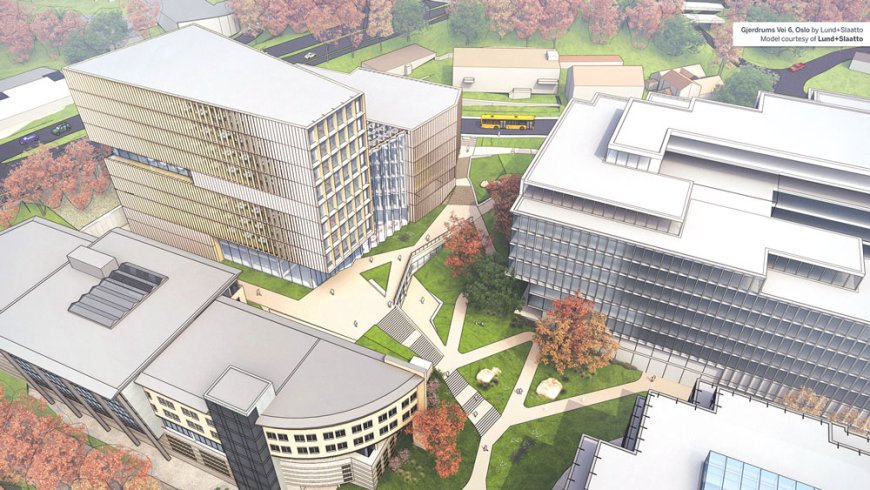The evolution of digital technologies in construction projects has been transformative.

Harsh Pareek
How are construction technologies playing a major role in India’s infrastructure and real estate projects?
Construction technologies are playing a significant role in India's infrastructure and real estate projects by revolutionizing traditional methods and enhancing efficiency, accuracy, and sustainability. In a rapidly developing country like India, characterized by its immense infrastructure needs and a thriving real estate sector, these technologies emerge as crucial solutions to effectively tackle the challenges at hand.
One crucial aspect is the adoption of Building Information Modeling (BIM) software, which enables comprehensive digital representations of construction projects. BIM facilitates collaboration among architects, engineers, contractors, and clients, allowing for better coordination, clash detection, and visualization throughout the project lifecycle. This integration translates into a notable reduction in errors, minimized rework, and improved adherence to project timelines.
Furthermore, the integration of innovative construction methods like modular construction and prefabrication, facilitated by construction technologies, accelerates project timelines while maintaining stringent quality standards. Drones and robotics are also increasingly being employed for site surveys, inspections, and even construction tasks, enhancing productivity, safety, and cost-efficiency on construction sites.
In essence, the holistic implementation of construction technologies empowers stakeholders to adeptly address challenges, efficiently meet burgeoning demands, and actively contribute to sustainable development goals. Embracing these technologies enables India to build resilient infrastructure and sustainable urban environments, accommodating its growing population while minimizing environmental impact.
How do you view the evolution of digital technologies in construction projects?
The evolution of digital technologies in construction projects has been transformative, revolutionizing traditional practices and enhancing project outcomes. Initially focused on automating manual processes and improving documentation, digital tools have progressed to offer advanced capabilities such as predictive analytics, real-time monitoring, and autonomous functionalities.
Integral to this evolution are technologies associated with Industry 4.0, including artificial intelligence, machine learning, and the Internet of Things (IoT). These technologies have played pivotal roles in enabling smarter decision-making, optimizing resource management, and enhancing safety measures within construction projects. Cloud computing and mobile applications have facilitated remote project management and seamless data exchange, fostering collaboration among dispersed teams and stakeholders.
Furthermore, digital technologies have enabled the integration of innovative construction methods like modular construction and prefabrication, leading to accelerated project timelines and improved efficiency. Overall, the evolution of digital technologies has transformed how construction projects are planned, executed, and managed, driving efficiency, productivity, and sustainability in the construction industry.
With the wide scale disruption pivoted by Generative AI, the construction technology industry is too on a path of new disruptions that will aid resource management, risk assessment, and project collaboration, GenAI promises to reshape the industry. Its role in autonomous equipment and virtual prototyping cements it as the transformative force driving the future of construction technology.

What are the dedicated digital/software solutions from the company for construction projects?
Trimble offers a comprehensive range of dedicated digital and software solutions tailored to various types of construction projects, catering to the diverse needs and requirements of construction firms. For large-scale infrastructure projects, Trimble Connect serves as a powerful collaboration platform, facilitating seamless data sharing and communication among project stakeholders. This allows for efficient coordination and decision-making throughout the project lifecycle.
For architectural design and planning, Trimble SketchUp provides intuitive 3D modeling software, enabling architects and designers to create detailed and accurate designs. Trimble's ProjectSight software streamlines project management tasks, helping construction teams track progress, manage resources, and mitigate risks effectively.
In the realm of building construction, Trimble offers solutions like Tekla Structures, specifically designed for structural engineering and detailing. This enables precise modeling, detailing, and coordination of building structures, ensuring efficient construction processes and high-quality outcomes.
Trimble's Viewpoint software is designed specifically for construction accounting and project management, offering a range of tools for financial management, budgeting, and document control. This comprehensive suite of features helps construction firms effectively manage their projects from start to finish. Additionally, Trimble's SiteVision augmented reality platform allows stakeholders to visualize proposed designs on-site, facilitating better decision-making and communication during construction projects.
Trimble's dedicated digital and software solutions cover a wide spectrum of construction needs, empowering construction firms to streamline workflows, improve collaboration, and achieve successful project outcomes.
How are the customers responding to your technologies and solutions?
Customers have responded positively to Trimble's technologies and solutions, recognizing their transformative impact on construction projects. For instance, Eversendai Construction Pvt Ltd completed the construction of Statue of Unity two months earlier than the specified timeline with nearly 25% overall efficiency gain, after implementing Trimble's solutions. One key aspect of customer response is the recognition of increased productivity and streamlined workflows enabled by Trimble's solutions. By leveraging advanced technologies and processes such as BIM, GPS, and laser scanning, customers report significant time savings and improved project outcomes. These technologies facilitate better coordination among project stakeholders, minimize errors, and optimize resource allocation, leading to smoother project execution and higher profitability.
Through Trimble's subscription services, customers gain access to a wide range of cutting-edge construction tools and software on a flexible and scalable basis. This model has garnered praise for its cost-effectiveness, as it makes advanced technologies and software solutions more affordable and accessible to construction firms of all sizes. Customers also appreciate the user-friendly interfaces and intuitive design of Trimble's software, which make adoption and integration into existing workflows seamless. Trimble's commitment to ongoing support and training further enhances customer satisfaction, ensuring that users can maximize the value of their investment in Trimble's technologies.
How do you look at the future demand trend for these technologies?
Looking ahead, Trimble anticipates a significant and sustained increase in demand for construction technologies in the future. As the construction industry continues to evolve, driven by factors such as urbanization, infrastructure development, and sustainability goals, the need for advanced solutions to address complex challenges will only grow.
One key trend shaping future demand is the increasing adoption of digitalization across the construction ecosystem. Stakeholders are recognizing the benefits of leveraging technologies and processes such as BIM, advanced positioning systems, and project management software to improve efficiency, productivity, and collaboration. This trend is expected to accelerate as construction firms seek to gain a competitive edge and meet evolving client expectations.
Simultaneously, the expansion of construction projects in scale and complexity is propelling a demand surge for innovative solutions. To optimize resource allocation, mitigate risks, and augment project visibility, artificial intelligence, machine learning, and the IoT are anticipated to play pivotal roles in driving efficiency and innovation within construction processes.
Trimble is well-positioned to meet these future demands with its comprehensive portfolio of advanced construction technologies and solutions, designed to empower stakeholders to succeed in an increasingly digital and sustainable construction landscape.







